
Making sense of smart agriculture: Why trusted guidance matters
For Missouri farmers navigating the challenges and opportunities of rapid technological change, MU Extension offers unbiased, research based guidance to help producers cut through the noise and make smart, practical decisions.

Ag technology takes to the skies in March 14 training
BUFFALO, Mo. – University of Missouri Extension faculty will offer a daylong training on using drones in agriculture and other commercial applications on March 14 in Buffalo. The event offers discussion and hands-on training about how to use drones in Missouri agriculture, says Caleb O’Neal, MU Extension field specialist in plant science and lead instructor for the course.

Prevent herbicide injury in residential neighborhoods
CARROLLTON, Mo. – Kathi Mecham, a field specialist in horticulture with University of Missouri Extension, says herbicide injury isn’t limited to agricultural areas. Garden and landscape plants can also be harmed, and reports from Carroll County last season illustrate the problem.
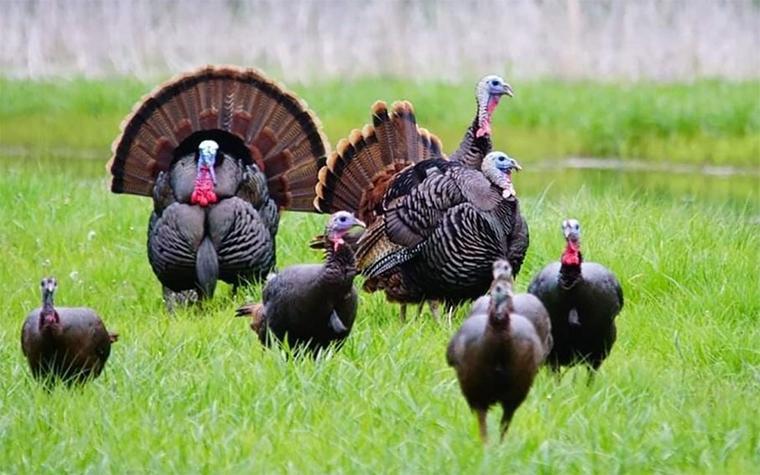
Antlers, Anglers and Ag event brings together farmers and outdoorsmen
NOVELTY, Mo. – University of Missouri Extension and partners will hold the first Antlers, Anglers and Ag: Elevating Today’s Outdoorsmen for Tomorrow’s Harvest event Saturday, March 28, at the MU Lee Greenley Jr. Memorial Research Farm in Novelty.
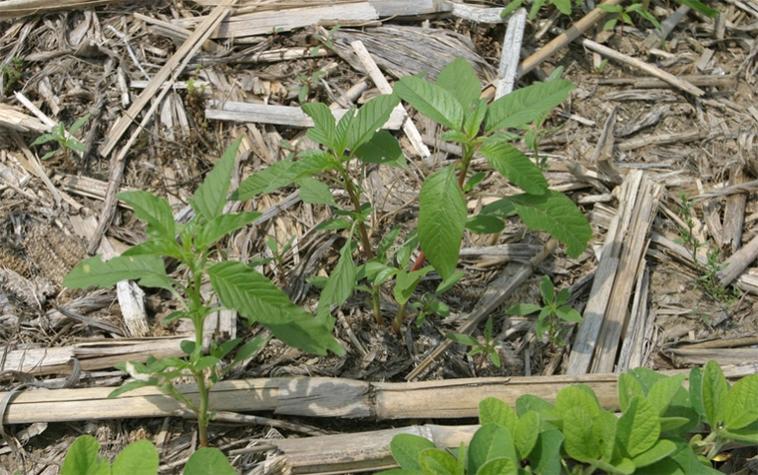
MU weed science team confirms dicamba-resistant waterhemp
Missouri is the fourth state to confirm the presence of waterhemp resistant to labeled rates of dicamba herbicide. MU Extension weed scientist Kevin Bradley says this is not surprising but adds to concerns about declining control options.

Register for the Missouri Crop Management Conference
Registration is open for the state’s premier agricultural conference for farmers and ag industry professionals, the Missouri Crop Management Conference, Dec. 9-10 in Columbia.
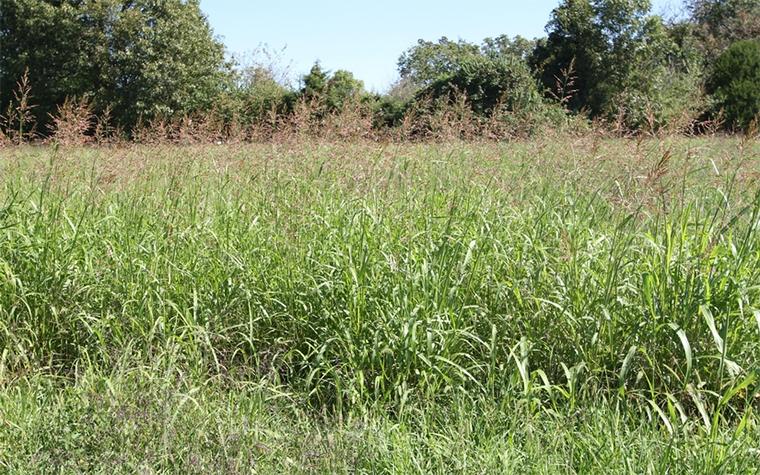
Johnsongrass appears in NW Missouri crops, pastures
Johnsongrass is spreading in northwest Missouri's crops and pastures. Experts recommend early fall herbicide applications and integrated control methods.
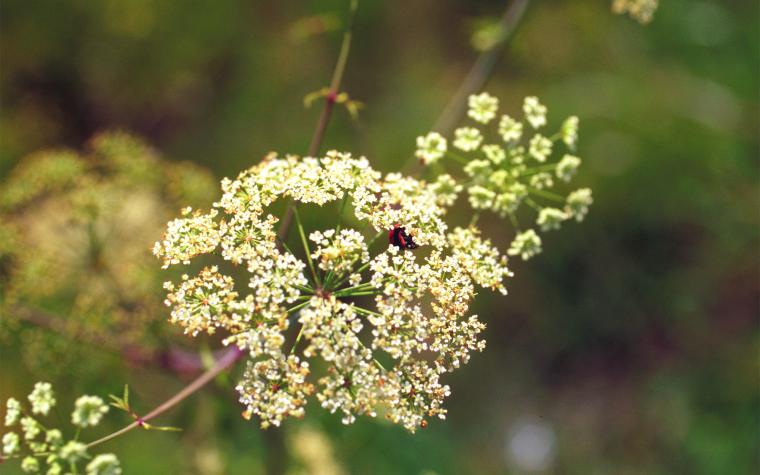
Mow or spot spray poison hemlock now
Poison hemlock, a plant that can kill livestock, is flowering and setting seed now in much of Missouri. While early control is recommended, it still can be managed with spot treatments or mowing, says Kevin Bradley, University of Missouri Extension weed scientist. It grows in ditches, roadways, fencerows, occasionally in pastures or hayfields that aren’t mowed regularly, and sometimes in no-till cropping systems.

Early control needed for poison hemlock
Control poison hemlock early using herbicides or mowing to protect livestock from its toxic effects.

Online ag research: When more is less
COLUMBIA, Mo. – Information in the digital age is like porridge in the tale “Goldilocks and the Three Bears.” How do you know what is too much, too little, just right – or maybe not right at all? The digital age has put vast amounts of information at your fingertips, which is good, says University of Missouri Extension weed scientist Kevin Bradley. What is not good is the confusion from trying to parse out what information is reliable…
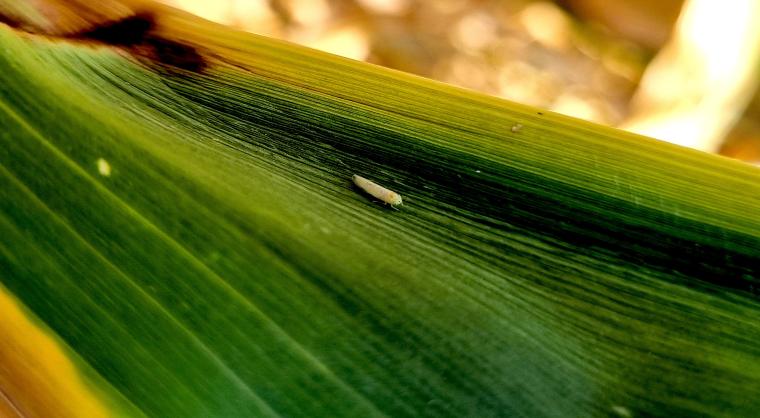
Grant aims to share pest management information with more diverse audience
The University of Missouri’s Integrated Pest Management (IPM) program has received a grant from the U.S. Department of Agriculture to strengthen its reach to diverse clientele with sustainable pest management practices. The grant from the USDA National Institute of Food and Agriculture aims to enhance the ability to get important pest management information out to clients who need it.
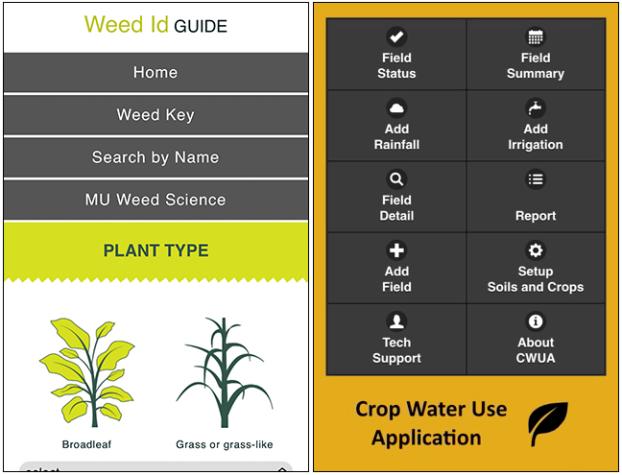
MU Extension offers listing of farm apps
Explore mobile tools to support farm decisions—from weather and crop models to weed identification and water use planning.
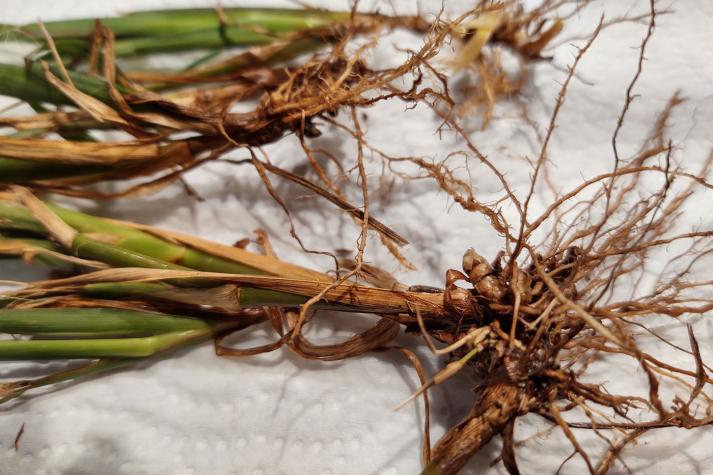
Two weeds to watch in pastures, hayfields in 2024
Knotroot foxtail and fountain grass are spreading in Missouri pastures, reducing forage quality and proving difficult to control.
MU Weed Science confirms HPPD-resistant waterhemp
COLUMBIA, Mo. – There is still time to manage resistance to HPPD-inhibiting herbicides in corn this year, but the window is shortening, according to University of Missouri Extension weed scientist Kevin Bradley.
Weeds adapt to fight back against herbicides
COLUMBIA, Mo. – Weeds today aren’t like “what Mom used to make,” says University of Missouri Extension weed scientist Kevin Bradley.
New regulations make weed management more complex in 2023
COLUMBIA, Mo. – Producers should prepare for more complexity in herbicide requirements and registrations in 2023 and beyond, says University of Missouri Extension weed scientist Kevin Bradley.The Environmental Protection Agency has proposed changes to atrazine labels that would have great impact, says Bradley. Atrazine is an effective and inexpensive herbicide used to kill broadleaf and grassy weeds in the majority of Missouri corn and…
Glufosinate-resistant Palmer amaranth found in Missouri Bootheel
Researchers confirmed glufosinate-resistant Palmer amaranth in Missouri, raising concerns for weed control and crop yields.
Benefit of killing annual weeds in winter wheat depends on weed, yield loss
COLUMBIA, Mo. – Killing common annual weeds in winter wheat may or may not be a good financial decision, especially when input costs are high, says University of Missouri Extension weed scientist Kevin Bradley.Winter wheat is one of the most competitive crops planted, Bradley says.Bradley offers these guidelines based on research from MU and other reputable sources.Common chickweed
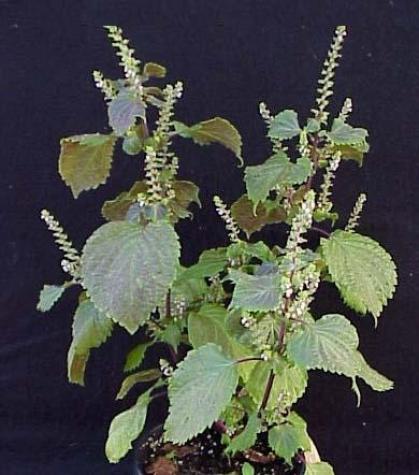
Plan to kill toxic perilla mint this spring or summer
Perilla mint is a toxic plant that can harm livestock. To control it, apply broadleaf herbicides between April and June before seed set
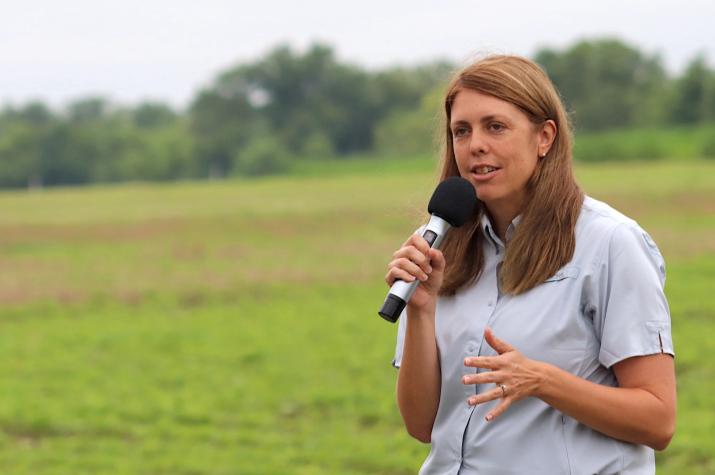
Cereal rye as a cover crop can reduce waterhemp
Using cereal rye as a cover crop can help reduce early-season waterhemp in soybeans without lowering yield.
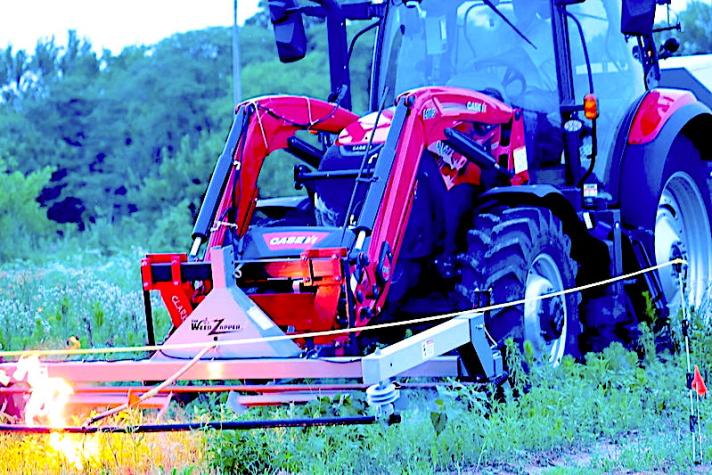
Weed electrocution research sparks interest as herbicide resistance impedes current methods
Weed electrocution offers a promising solution to herbicide-resistant weeds. Research shows it effectively controls waterhemp and reduces seed viability.
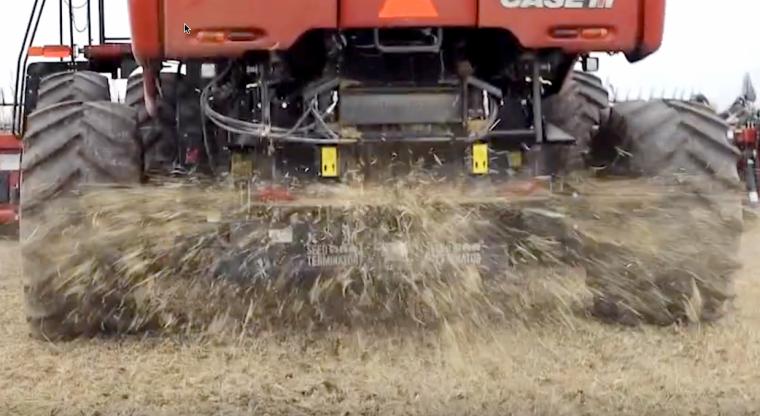
Mizzou Weed Science shares Seed Terminator research
Mizzou Weed Science's research shows the Seed Terminator attachment pulverizes 93.2% of waterhemp seeds entering the combine, aiding in weed control.
MU research looks at technology to kill weeds
COLUMBIA, Mo. – If it’s a weed, spray it. That’s the mindset that most in the agriculture industry held for years. That thinking no longer works as more weeds become resistant to herbicides, says Kevin Bradley, University of Missouri Extension weed scientist. Bradley uses waterhemp as an example. Waterhemp is one of 14 herbicide-resistant weed species in Missouri. It is a prolific producer of seeds, and Bradley considers it Missouri’…
Survey of Missouri Pesticide Applicator Practices, Knowledge, and Perceptions
The introduction of soybean and cotton traits with resistance to synthetic auxin herbicides has led to an increase in concern over the off-target movement of dicamba and 2,4-D. A direct-mail survey was sent to Missouri pesticide applicators in January of 2016 to understand current herbicide application practices and applicator knowledge and awareness of the new synthetic auxin technologies.
Off-target movement of dicamba in Missouri: Where do we go from here?
The situation. In 2017, there have been numerous instances of off-target movement of dicamba throughout the state of Missouri and beyond. While the majority of the injury on a per land unit area has definitely occurred in the boot heel of Missouri, there are many problems with off-target movement of dicamba in the rest of the state.
